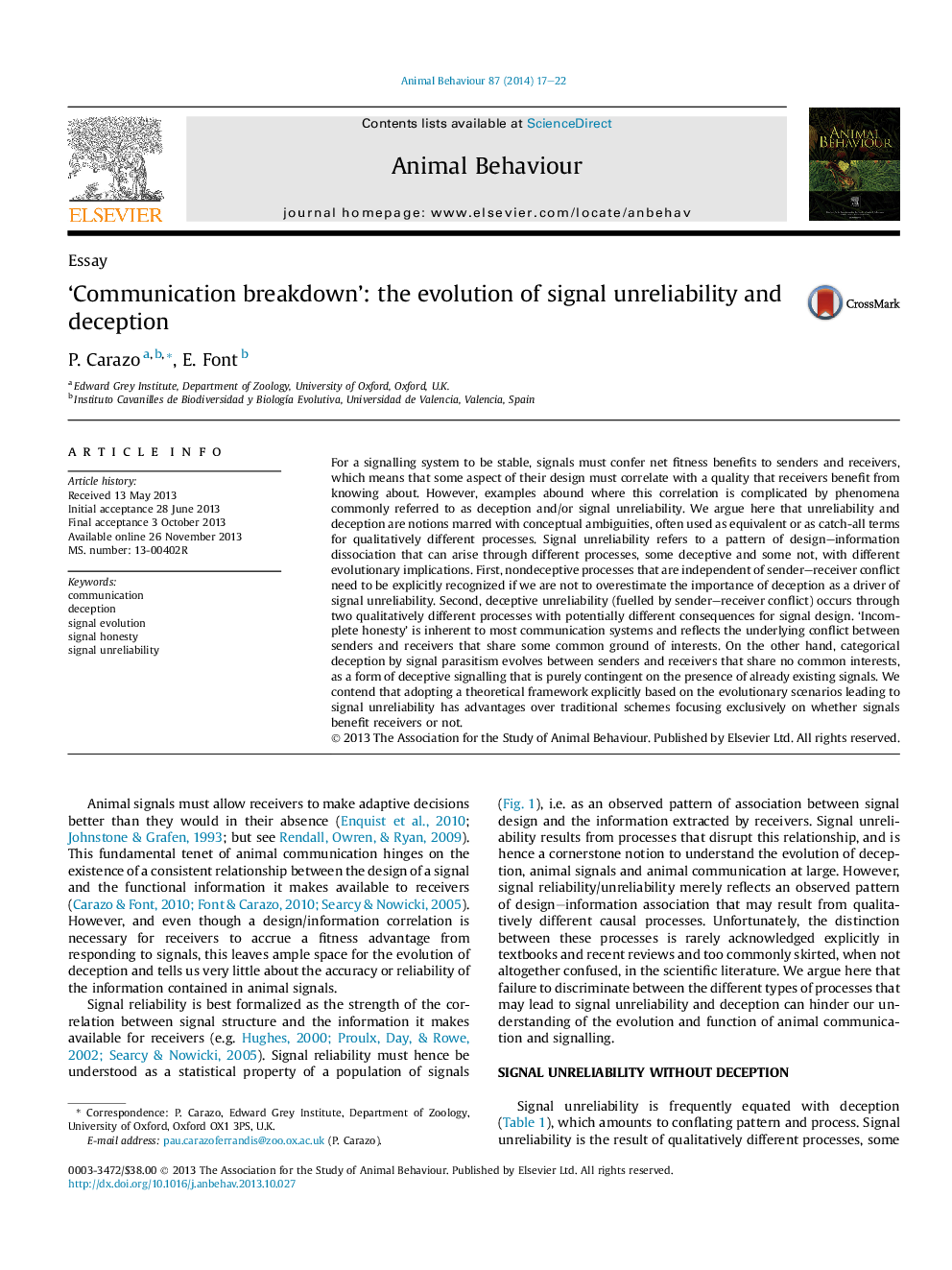| Article ID | Journal | Published Year | Pages | File Type |
|---|---|---|---|---|
| 8490797 | Animal Behaviour | 2014 | 6 Pages |
Abstract
For a signalling system to be stable, signals must confer net fitness benefits to senders and receivers, which means that some aspect of their design must correlate with a quality that receivers benefit from knowing about. However, examples abound where this correlation is complicated by phenomena commonly referred to as deception and/or signal unreliability. We argue here that unreliability and deception are notions marred with conceptual ambiguities, often used as equivalent or as catch-all terms for qualitatively different processes. Signal unreliability refers to a pattern of design-information dissociation that can arise through different processes, some deceptive and some not, with different evolutionary implications. First, nondeceptive processes that are independent of sender-receiver conflict need to be explicitly recognized if we are not to overestimate the importance of deception as a driver of signal unreliability. Second, deceptive unreliability (fuelled by sender-receiver conflict) occurs through two qualitatively different processes with potentially different consequences for signal design. 'Incomplete honesty' is inherent to most communication systems and reflects the underlying conflict between senders and receivers that share some common ground of interests. On the other hand, categorical deception by signal parasitism evolves between senders and receivers that share no common interests, as a form of deceptive signalling that is purely contingent on the presence of already existing signals. We contend that adopting a theoretical framework explicitly based on the evolutionary scenarios leading to signal unreliability has advantages over traditional schemes focusing exclusively on whether signals benefit receivers or not.
Related Topics
Life Sciences
Agricultural and Biological Sciences
Animal Science and Zoology
Authors
P. Carazo, E. Font,
